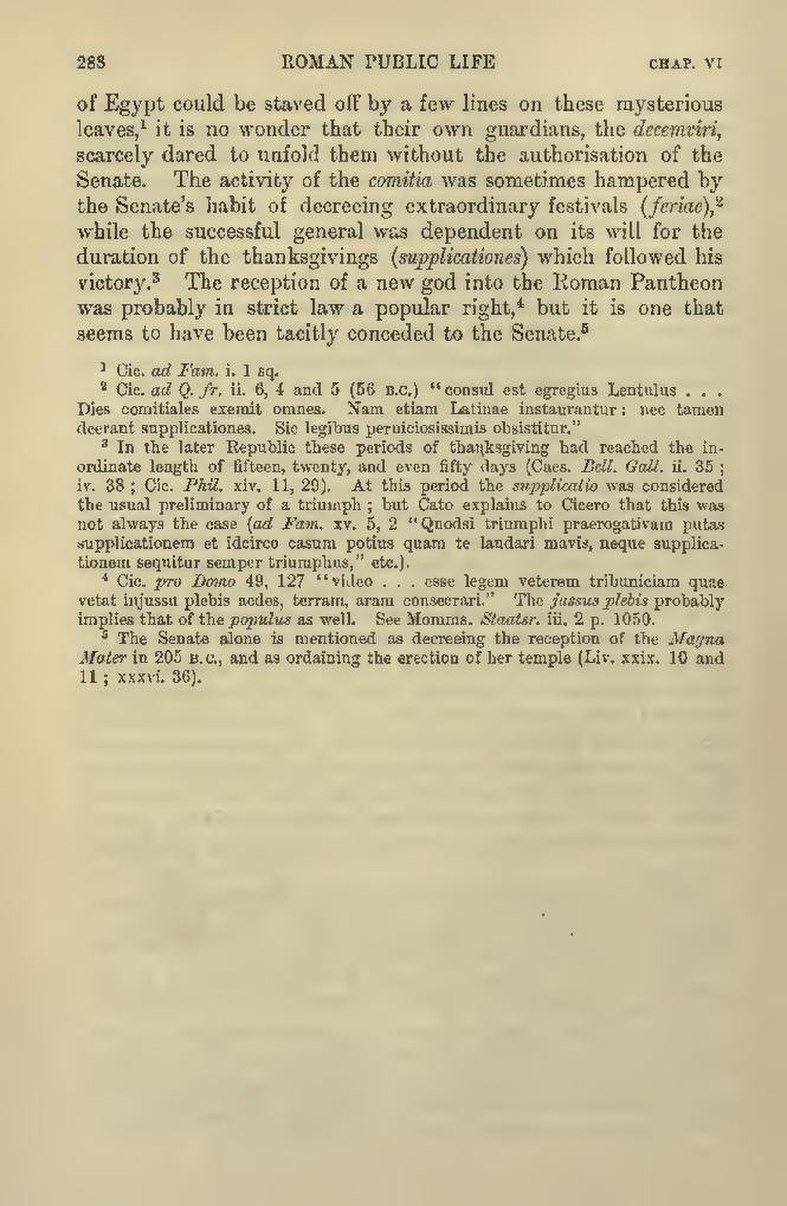This page needs to be proofread.
of Egypt could be staved off by a few lines on these mysterious leaves,[1] it is no wonder that their own guardians, the decemviri, scarcely dared to unfold them without the authorisation of the Senate. The activity of the comitia was sometimes hampered by the Senate's habit of decreeing extraordinary festivals (feriae),[2] while the successful general was dependent on its will for the duration of the thanksgivings (supplicationes) which followed his victory.[3] The reception of a new god into the Roman Pantheon was probably in strict law a popular right,[4] but it is one that seems to have been tacitly conceded to the Senate.[5]
- ↑ Cic. ad Fam. i. 1 sq.
- ↑ Cic. ad Q. fr. ii. 6, 4 and 5 (56 B.C.) "consul est egregius Lentulus . . . Dies comitiales exemit omnes. Nam etiam Latinae instaurantur: nec tamen deerant supplicationes. Sic legibus perniciosissimis obsistitur."
- ↑ In the later Republic these periods of thanksgiving had reached the inordinate length of fifteen, twenty, and even fifty days (Caes. Bell. Gall. ii. 35; iv. 38; Cic. Phil. xiv. 11, 29). At this period the supplicatio was considered the usual preliminary of a triumph; but Cato explains to Cicero that this was not always the case (ad Fam. xv. 5, 2 "Quodsi triumphi praerogativam putas supplicationem et idcirco casum potius quam te laudari mavis, neque supplicationem sequitur semper triumphus," etc.).
- ↑ Cic. pro Domo 49, 127 "video . . . esse legem veterem tribuniciam quae vetat injussu plebis aedes, terram, aram consecrari." The jussus plebis probably implies that of the populus as well. See Momms. Staatsr. iii. 2 p. 1050.
- ↑ The Senate alone is mentioned as decreeing the reception of the Magna Mater in 205 B.C., and as ordaining the erection of her temple (Liv. xxix. 10 and 11; xxxvi. 36).
